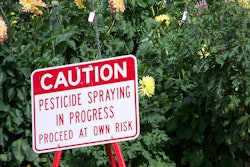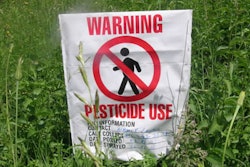As a story reported by WTOP Radio in Washington, D.C. points out, Roger Berliner, a Montgomery Country councilman, has asked the director of the National Cancer Institute to weigh in on a bill that would restrict or flat-out ban some pesticides and lawn chemicals. (Here is some background on the proposed ban in Montgomery County, Maryland.)
A public hearing was held on January 15 and a second one in February. Next, a committee is meeting on March 16 to hear from experts such as the National Cancer Institute director, Harold Varmus, M.D., should he accept Berliner’s invitation.
In his letter to Varmus, Berliner said: “Legislation has been introduced before our County Council that would ban the use of certain pesticides for ornamental lawn care on private property, as well as on parkland, fields, and county property generally. The legislation is predicated upon the belief held by many that the exposure to pesticides poses an unacceptable risk to human health, animal health, and the environment notwithstanding that the Environmental Protection Agency permits their use.”
Berliner goes onto say that a 2012 statement by the American Academy of Pediatrics seems to support the arguments of both proponents and opponents of the proposed bill, 52-14, further complicating the issue. “My colleagues and I are not expert in such matters, and given that there is no major jurisdiction in the country to have adopted a comparable ban, we have few resources to call upon to provide us with the scientific guidance we need to evaluate the proposal before us,” Berliner said in his letter.
Coincidentally, Varmus will be stepping down from the National Cancer Institute at the end of March.
In the meantime ... according to a story at BethesdaNow.com, a high-ranking National Cancer Institute doctor says there’s not yet enough scientific evidence to know if common lawn care products such as Roundup have the potential to cause cancer.
In a letter sent to Berliner on March 11, Dr. Stephen Chanock summarized the research so far and wrote that “until a more comprehensive scientific understanding of pesticide-carcinogenesis is achieved,” balancing cancer risk with the benefits of pesticide use “remains a public policy judgement rather than a strictly scientific one.”


















